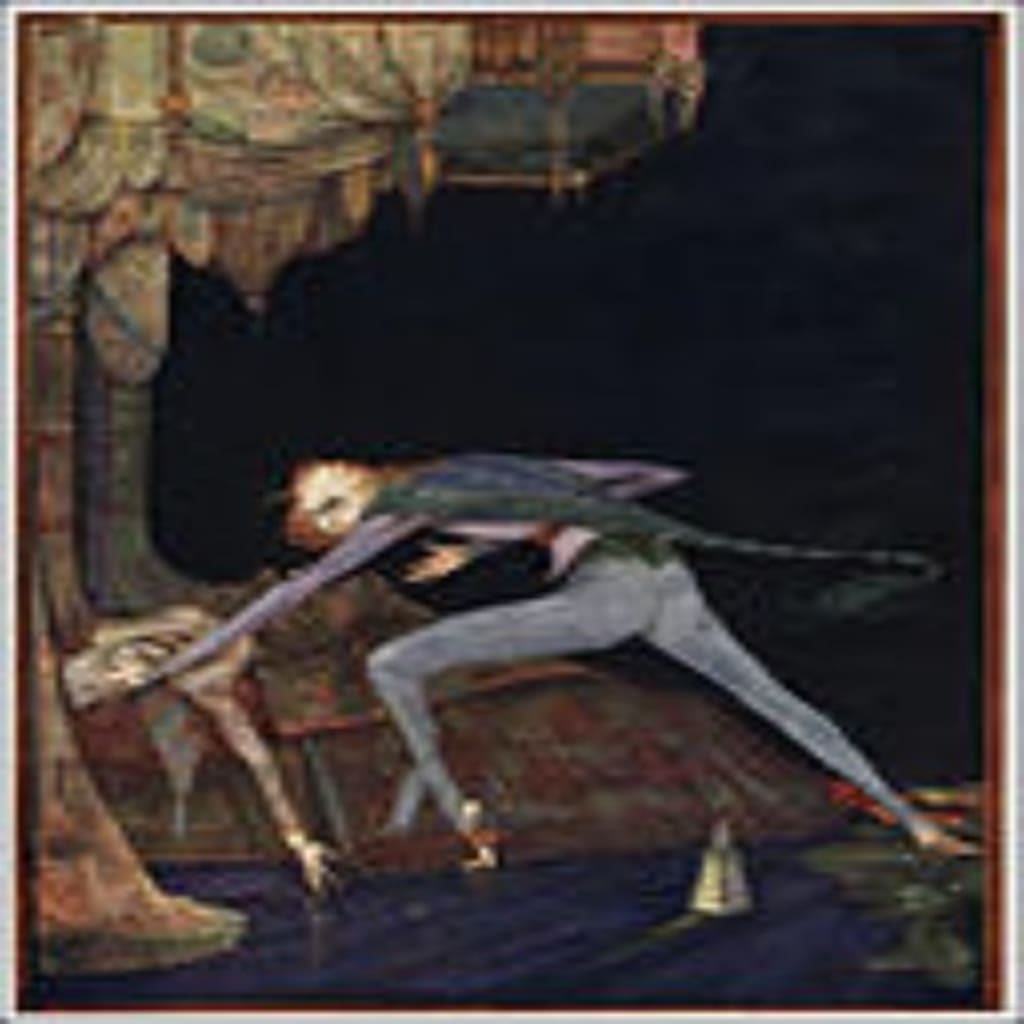The Tell-Tale Heart" by Edgar Allan Poe (1843)
"The Tell-Tale Heart": A Descent into Madness and the Haunting Echoes of Guilt

“The Tell-Tale Heart” by Edgar Allan Poe is a classic work of Gothic fiction that explores the dark corners of the human mind. Published in 1843, this short story is a masterful work of psychological horror, dealing with the complexities of guilt, paranoia, and descent into madness. Poe's ability to build tension and create an atmosphere of fear is evident from the opening lines, making this story a timeless exploration of the macabre.
The narrator, an unnamed character, opens the story by emphasizing their mental health, citing the heightened sensitivity of their senses as proof of their mental acumen. They claim to have a special obsession with the old man's vulture eye, which they find disturbing. This fixation becomes the catalyst that drives the narrator into madness and ultimately horrific events take place. Poe uses first-person storytelling, allowing the reader to enter the troubled mind of the main character. The immediacy of this perspective enhances the psychological impact, as the narrator becomes both guide and antagonist in the unfolding drama.
The story unfolds with uncanny precision, with the narrator recounting the meticulous planning of the murder and the subsequent efforts to cover up the crime. The pacing of “The Tell-Tale Heart” is deliberate, Poe expertly builds suspense. The narrator's growing anxiety and the incessant beating of the old man's heart—a sound that perhaps exists only in the narrator's mind—create an atmosphere of impending doom. Poe's use of short phrases and repetitive phrases adds to the sense of unease, pushing the story forward at a perceptible pace. The murder of the old man was carried out coldly and with precise calculation.
The narrator dismembers the body and hides it under the floorboards, convinced that they have executed it perfectly. However, it is the act of concealment that becomes the central motif of the story and a manifestation of the narrator's deteriorating mental state. The heartbeat, initially attributed to the remains of the old man underground, develops into a symbol of the narrator's sin. Poe skillfully uses sound imagery to convey the persistence of sound, pushing the narrator to the brink of madness. The relentless beatings become a metaphorical expression of the narrator's troubled conscience, a haunting reminder of his crimes. Poe's mastery over the unreliable narrator is evident when the protagonist descends into madness.
The narrator vacillates between assertions of common sense and moments of frantic confession. The neat facade is fraying, revealing the instability underneath. The story becomes a psychological battlefield, the reader is forced to distinguish the line between reality and the narrator's distorted perception. The story's climax is marked by a surging heartbeat, both in the storytelling and in the reader's imagination. The tension reaches its climax when the narrator is overwhelmed by guilt and paranoia, believing that the sounds are getting louder and will reveal his crime. This culmination of psychological torment is a testament to Poe's ability to evoke visceral fear through the written word. The final revelation of the murder is sudden and chilling.
The narrator, unable to contain his growing guilt and haunted by an imaginary heartbeat, cannot resist the compulsion to confess. The brutal confession is a moment of grim clarity, as the narrator descends into a culminating state of madness. Poe leaves the resolution open, allowing the reader to grapple with the aftermath and the lingering question of whether the heartbeat is real or the product of the narrator's disturbed mind.
“The Tell-Tale Heart” resonates not only because of its great storytelling but also because of its thematic richness. It explores the fragility of the human soul, the consequences of guilt, and the thin line between reason and madness. Poe's story transcends the horror genre, delving into the complexities of the human condition and the haunting echoes of our deepest fears and regrets.
In short, “The Tell-Tale Heart” is considered a literary gem that continues to captivate readers with its psychological depth and atmosphere of insecurity. Edgar Allan Poe's exploration of guilt, paranoia, and the breakdown of the human spirit remains a benchmark in the field of Gothic fiction. The heartbeat echoes through the hallways of this macabre tale, lingering in the reader's consciousness, a haunting reminder of the enduring power of Poe's macabre imagination.
About the Creator
Enjoyed the story? Support the Creator.
Subscribe for free to receive all their stories in your feed. You could also pledge your support or give them a one-off tip, letting them know you appreciate their work.





Comments (1)
I'm not sure what to say. This is just... wow.